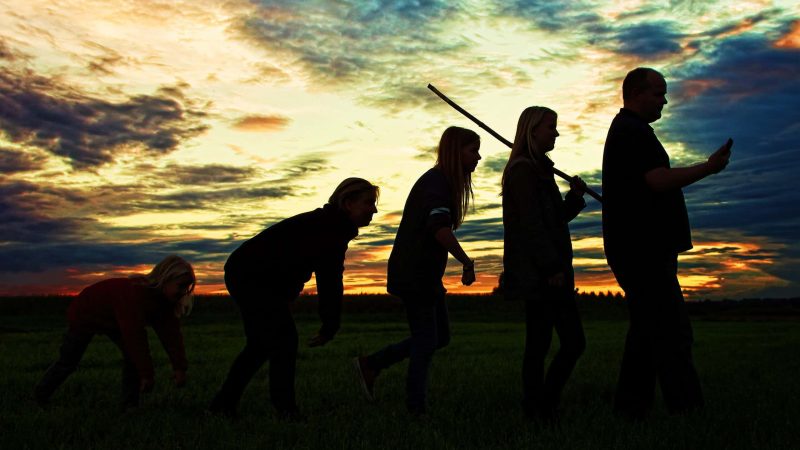Men Becoming Fathers at Old Ages

Two Hollywood giants just became fathers (again) in their 8th (Robert DeNiro) and 9th (Al Pacino) decades of life. Given the odds, that is quite an accomplishment. And my guess is that they are proud of these herculean feats, as this kind of success has less to do with wealth and power and more to do with health and genetics. It’s pretty clear that men have biological clocks just like women. However, they’re not on similar time frames: menopause in women is often a sudden event accompanied by symptoms such as hot flashes whereas manopause occurs more gradually and subtly over several years and doesn’t tick nearly as loudly. Either way, with the onset of either condition, infertility is assured. By defying the laws of manopause, these two legendary actors have notably pushed the limits of biology with their recent miraculous conceptions.
Old Age as a New Concept
Remarkably, the concept of older paternal age dads is a relatively young one for our species. In fact, the whole issue of being an older dad has only been around for a generation or two, as our life expectancy on this planet only exceeded 50 years about a half-century ago. So never in history have we ever had to think about this. But now, as we live longer, we do. And there’s a lot to think about.
I see young dads in their thirties lining up for vasectomies who can’t imagine raising toddlers a decade later. Some fear that the stress of child rearing as an older dad will most certainly shorten their highly productive lives. I also see childless, older men who, with age and experience, develop an intense desire to now have them. For many of them, having children later in life gives them lots of heretofore unrealized reasons to live longer, healthier, and happier lives. No doubt, either way, children lend enormous meaning to our existence.
To be sure, there are risks attached to being an older dad. Sperm is made throughout a man’s life, but the system can get rusty and make sperm of lower quality with age. This is manifest as broken or fragmented sperm DNA which can lead to infertility and miscarriages. Sperm from older dads also tend to harbor more DNA mutations which can lead to uncommon but debilitating diseases in offspring like hemophilia, dwarfism, and progeria. Lastly, sperm from older men exhibit epigenetic changes that affect how genes are expressed and lead to higher rates of disorders such as autism, schizophrenia, and bipolar disorder in offspring. So, it’s important to have a sober respect for what can go awry when older men decide to become fathers.
Ultimately, though, as a physician and scientist, I am an optimist about the integrity of the million-year-old process of human reproduction. At worst, the risk that older dads bring to bear on offspring is similar in magnitude (3%) to the chance that any couple in America of any age will have a child with birth defects. So, yes, they are real, but they are also relatively uncommon events. And we can thank God, Darwin, or both for that!







